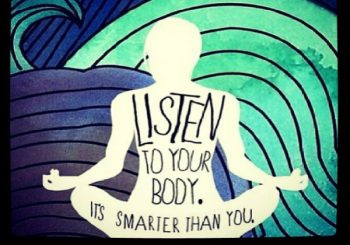 By Nikki Harper
By Nikki Harper
Staff Writer for Wake Up World
The statistics around diets and dieting are quite jaw dropping. Did you know, for example, that two thirds of British adults are on a diet ‘most of the time’ according to research?[1] Or that an estimated 45 million American adults are on a diet at any one time, spending some $33 billion a year between them on diet products?[2] And yet, as the Boston Medical Center succinctly points out, two thirds of Americans are overweight or obese[2]. Diets do not work. Whatever kind of diet it is, however established or quirky or out there, it won’t work. If diets worked, reliably and long term, we wouldn’t have a worldwide obesity crisis.
Sure, some diets get fast results for weight loss. However, around 80% of people who lose 10% of their bodyweight end up regaining that weight – or even more – in the longer term[3]. There are a variety of reasons for this, some physical and some psychological. Studies have shown that the body urges us to eat 100 extra calories for every 2lbs lost, for instance, ensuring that people who have lost a lot or weight through dieting tend to feel constantly hungry[4]. The lower metabolism caused by weight loss also makes it harder for those dieting to continue to burn off calories. Purely in terms of losing weight, which is for most people the main objective of a diet, diets fail – and that’s before you take into account the psychological damage that can be done by dieting.
And yet of course, we understand that obesity is a major health risk – so something needs to change. One school of thought which offers a solution to the obesity crisis without lining the pockets of the dieting industry is intuitive eating.
The term and concept of intuitive eating was coined by two nutritionists, Evelyn Tribole and Elyse Resch, in 1995. Essentially, intuitive eating puts you and your body back in control – you listen to your body for signs about what to eat and when, rather than doing what a dieting guru tells you to do. We are biologically programmed to eat when we need to eat, and to stop eating when we have had enough. To maintain a healthy weight, we just need to learn to tune back into these intuitive and physical signals from our bodies.
Research studies into intuitive eating have shown some very promising results. Studies have linked intuitive eating to lower BMIs and good weight maintenance, as well as healthier psychological attitudes towards food and eating[5]. Intuitive eating participants in research programs have also demonstrated improved self-esteem and body image, and lower levels of depression and anxiety[6], and those who practice intuitive eating are less likely to develop eating disorders[7].
Intrigued? There are some simple guidelines you can follow if you want to get started with intuitive eating.
1 Stop Dieting. Forever.
The first and most important step is to ditch the diet mentality for good. You will no longer be ‘on a diet’ or ‘watching what you eat’, or indeed ‘counting calories’. So, get rid of diet products, books and subscriptions that you may already have.
2 Listen to Your Hunger
Understanding and honoring hunger is the fundamental key to intuitive eating. Your body will tell you – through feelings of hunger – when it needs more energy and more food intake. If you’re not hungry, ideally don’t eat (although the whole point of intuitive eating is to be non-prescriptive, so the occasional eating something ‘just because’ won’t do you any harm).
Conversely, if you are hungry, do eat. This is very important. If you consistently ignore your hunger, your body will go into starvation mode, conserving energy and making it even harder for you to lose weight, if that is your goal. Apart from the fact that it feels miserable to be hungry. If you’re hungry, there is a physiological reason for that, so honor it, and eat.
Having said that, it’s important with intuitive eating to distinguish between physical hunger and emotional hunger. If you’re sad, lonely, fearful or otherwise distressed, you may feel triggered to eat something. This is not physical hunger and the eating does nothing to remove the underlying negative emotion. Intuitive eating teaches that you should honor your physical hunger, but that you should try to get the psychological or practical help you need to eliminate any accompanying emotional hunger.
3 Ditch Food Guilt
With intuitive eating, there is no such thing as good food or bad food. We all clearly understand these days that some foods are better for your health than others – an organic salad is always going to be healthier than a fast food takeout – but intuitive eating works on a day to day, hour to hour basis. If you want a burger, have a burger. So long as you don’t live on them exclusively, bad foods won’t harm you.
Likewise, get out of the mindset of calorie counting or food restrictions. These unwritten rules you’re conditioned to follow – Tribole and Resch call them the food police – are rules created by the diet industry. The only rules you should be following are those intuitive rules dictated by your body and its physiological needs.
4 Savor Your Food
If you eat slowly and purposefully, paying full attention to your food, and savoring each mouthful, you will appreciate it more. In this much, intuitive eating has something in common with mindful eating. Eating slowly is also important because it takes time for your brain to register the feeling of fullness from your stomach. So, give it time.
5 Honor Your Body Size and Shape
Intuitive eating as a philosophy embraces all body sizes and shapes and asks us to be realistic about body image goals. Not everyone is going to be a size zero willow; not everyone wants to be. On the other hand, there’s nothing wrong with being naturally very slim or lithe either. Embrace your body as it is and as its healthiest version can be, and don’t waste time wanting to be something you’re not.
6 Get Active
Hand in hand with intuitive eating, this philosophy encourages movement and exercise. However, it doesn’t have to be strenuous exercise, or rigid daily routines of exercise. Walking in the park counts, as does dancing in a club – what matters is that you move your body in ways which feel good to you.
Overall, intuitive eating is more of a lifestyle change than a diet – in fact, it’s an anti-diet. The intuitive eating principles work holistically to create a healthy body and a healthy body image, both of which are crucial to our physical and mental wellbeing.
References:
- [1] https://www.huffingtonpost.co.uk/2016/03/10/majority-brits-are-on-a-diet-most-of-the-time_n_9426086.html
- [2] https://www.bmc.org/nutrition-and-weight-management/weight-management
- [3] https://www.psychologytoday.com/gb/blog/changepower/201010/why-diets-dont-work-and-what-does
- [4] https://www.webmd.com/diet/news/20161014/how-your-appetite-can-sabotage-weight-loss
- [5] https://www.ncbi.nlm.nih.gov/pubmed/23962472
- [6] https://www.sciencedirect.com/science/article/abs/pii/S2212267213018960
- [7] https://www.sciencedirect.com/science/article/abs/pii/S0195666315300635
Recommended articles by Nikki Harper:
- Harnessing the Power of Synchronicity
- Beyond 11:11 – The Significance of Repeating Number Patterns
- A Time to be Born and a Time to Die: Can Astrology Predict Death?
- Premature and Caesarean Birth: An Astrological Misinheritance?
- The Benefits of a Daily Divination Practice – and How to Start One
- 7 Ways to Find Awe in Your Everyday Life
- Need Answers? Looking for Insight? 7 Ways Astrology Can Help
- Alone But Not Lonely: 6 Amazing Benefits of Solitude
- Dancing in the Rain: 6 Reasons We Should All Be Pluviophiles
- Finding Time for a Daily Spiritual Practice – How and Why to Devote Your Time
- 7 Simple Steps to Start Communicating With Nature
- Getting Started with Remote Viewing: Step by Step to Strengthen Your Psi Abilities
About the author:
 Nikki Harper is a spiritualist writer, astrologer, and editor for Wake Up World. She writes about divination, astrology, mediumship and spirituality at Questionology: Astrology and Divination For the Modern World where you can also find out more about her work as a freelance astrologer and her mind-body-spirit writing and editing services. Nikki also runs a spiritualist centre in North Lincs, UK, hosting weekly mediumship demonstrations and a wide range of spiritual development courses and workshops.
Nikki Harper is a spiritualist writer, astrologer, and editor for Wake Up World. She writes about divination, astrology, mediumship and spirituality at Questionology: Astrology and Divination For the Modern World where you can also find out more about her work as a freelance astrologer and her mind-body-spirit writing and editing services. Nikki also runs a spiritualist centre in North Lincs, UK, hosting weekly mediumship demonstrations and a wide range of spiritual development courses and workshops.
Say hi at Questionology.co.uk or on Facebook.






